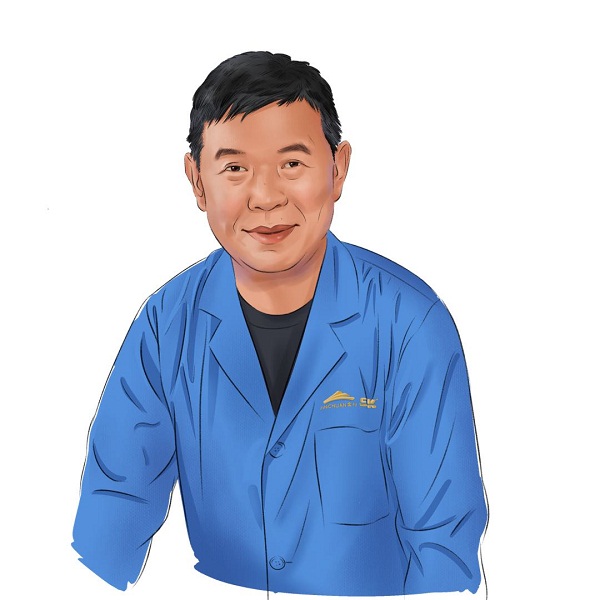Inventor spends years completing SENSOR

When it comes to innovation, the fact that a tiny success comes after thousands of failures is a hard-learned lesson known to all inventors. And this is reflected throughout Yang Bingsong’s career.
Yang started off working as an instrument maintenance worker at Jinchuan Group more than 30 years ago. Now he is a senior instrument technician.
In early 2000, Yang was in charge of maintaining instruments at the group’s precious metal production factory. But there was a problem. Inaccurate measurements caused by thermolabile electrochemical sensors had resulted in low-efficiency production. It had been a bottleneck of the group for years.
“We had to replace the sensors every 10 hours due to the imported electrode’s shortcomings in durability and accuracy. Each electrode is about 1,000 yuan (about $144 today),” Yang said. “That incurs a great expense and exacerbates manpower shortages.”
In 2002, Jinchuan invited a Japanese chemical industrial expert to help to develop a new sensor to address this problem, but it was futile.
“The expert told me it was impossible to have an electrochemical sensor that can withstand such high-temperature conditions,” Yang recalled. However, he didn’t quit. “In my philosophy, where there is a spear, there is a shield. I believe we can find ways to counter that.”
After that, Yang began to develop a sensor in the basement of his home during holidays and in his spare time. Yang chose to reconstruct a pressure cooker, which he used to simulate a high-temperature environment to test a sensor’s reaction. The move was just one step in his journey to develop an ideal sensor.
“I only received a technical school education. The greatest difficulty for me was the lack of expertise,” Yang said.
During experiments, failure is common. Even a small snag forced Yang to take time off and go through literature and consult with experts. For years, Yang tried many materials, including chicken bones, and repeated his testing and inquiring of experts until his efforts paid off in 2009.
It was at this time when a chlorine leak had occurred at a precious metal production plant of Jinchuan. The group’s executives turned to Yang, asking him to use his sensor to see if it could help to fix the problem.
“At that time, my sensor ahieved a stable performance on a pressure cooker trial. Then I handed it in for the test,” Yang said. Unexpectedly, his sensor served nearly eight months for the plant. That means the newly developed electrochemical sensor’s life span is more than 10 times that of its peers.
The sensor, capable of resisting temperatures up to 140 C, officially made its debut in 2010. It has filled the gap of products used for measuring oxidation-reduction potential in a high-temperature environment.
“Innovations originating from front-line work are valuable because they come from practices and help to contribute profit for businesses,” said Yang.
To encourage more innovations, Jinchuan has helped Yang set up a studio, where the 54-year-old and his team have developed a slew of instrument-related technologies, generating more than 2.4 million yuan in annual profit for Jinchuan.
“Jinchuan has constantly increased its investment in technological innovation and gives more incentives to outstanding creators,” Yang said. “That not only gives us a sense of gain, but motivates us to do such things.”








